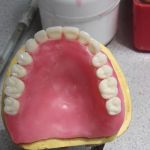Full Dental Assessment: Why It’s Essential for Your Oral Health
- Importance of a Dental Assessment
- What Happens During a Full Dental Assessment?
- Common Issues Detected in Dental Assessments
- How to Prepare for Your Dental Assessment
- Benefits of Regular Dental Checkups
Importance of a Dental Assessment
A full dental assessment is a comprehensive examination of your oral health that plays a crucial role in the prevention of dental issues. Regular assessments can help detect potential problems before they become serious, ensuring that you maintain a healthy smile for years to come. This proactive approach is vital for identifying issues such as cavities, gum disease, or oral cancer, all of which are easier to treat when caught early.
What Happens During a Full Dental Assessment?
During a full dental assessment, your dentist will examine your teeth, gums, and mouth to evaluate your overall oral health. The process typically includes the following steps:
- Examination: The dentist will carefully inspect your teeth for cavities, signs of wear, or any other issues. They will also check your gums for signs of gum disease.
- X-rays: Depending on your age and medical history, your dentist may take X-rays to get a detailed look at your teeth and jawbone, which can help spot issues not visible to the naked eye.
- Cleaning: A hygienist will perform a cleaning to remove plaque and tartar buildup, which can lead to cavities and gum disease.
- Oral Cancer Screening: Your dentist may also conduct an oral cancer screening to check for abnormalities or signs of cancer in your mouth, tongue, and throat.
Common Issues Detected in Dental Assessments
Regular dental assessments are critical for identifying a variety of common oral health issues, including:
- Cavities: The most common dental problem, cavities occur when bacteria in the mouth produce acids that erode tooth enamel.
- Gum Disease: Gum disease, which ranges from mild gingivitis to more severe periodontitis, is often detected during a dental assessment.
- Tooth Sensitivity: Tooth sensitivity to hot or cold can be a sign of enamel erosion, cavities, or gum recession, and can be addressed early with treatment.
- Oral Cancer: A dentist will check for abnormal growths or signs of oral cancer, ensuring that it’s detected at the earliest possible stage.
How to Prepare for Your Dental Assessment
Preparing for your dental assessment can make the experience smoother and more efficient. Here are some tips to ensure you're ready:
- Bring Your Medical History: Make sure to provide your dentist with any medical conditions, medications, or allergies that could affect your oral health.
- Brush and Floss: Be sure to brush and floss before your appointment to ensure your mouth is clean and your dentist can assess your teeth effectively.
- Ask Questions: If you have any concerns about your oral health or the procedures being performed, don’t hesitate to ask your dentist for more information.
Benefits of Regular Dental Checkups
Maintaining a schedule of regular dental assessments, usually every six months, offers numerous benefits:
- Early Detection: Catching problems like cavities, gum disease, or oral cancer early can make them easier and more affordable to treat.
- Prevention: Regular cleanings help prevent plaque buildup, which can lead to serious dental issues if left unchecked.
- Improved Overall Health: Oral health is closely linked to overall health, including heart health. Regular checkups can help prevent complications that could affect your entire well-being.
Taking care of your teeth through a full dental assessment is an essential part of maintaining good oral health. If you're ready for a dental checkup or have any concerns, Dentistry Toothtruth can help guide you with expert advice and services.







 Dorfman Orthodontic Group - Bensalem5.0 (199 review)
Dorfman Orthodontic Group - Bensalem5.0 (199 review) Dental Solutions of Roxborough4.0 (219 review)
Dental Solutions of Roxborough4.0 (219 review) Suburban Dental Medicine4.0 (31 review)
Suburban Dental Medicine4.0 (31 review) Smiles Divine Dental4.0 (25 review)
Smiles Divine Dental4.0 (25 review) Icon Dental4.0 (48 review)
Icon Dental4.0 (48 review) Affordable Dentures & Implants4.0 (443 review)
Affordable Dentures & Implants4.0 (443 review) The Importance of Oral Health Education During Pregnancy for a Healthy Pregnancy
The Importance of Oral Health Education During Pregnancy for a Healthy Pregnancy Best Tips for Brushing Your Teeth Properly for Healthy Gums: Essential Techniques for Oral Health
Best Tips for Brushing Your Teeth Properly for Healthy Gums: Essential Techniques for Oral Health Why Skipping Dental Checkups Can Lead to Bigger Oral Health Problems
Why Skipping Dental Checkups Can Lead to Bigger Oral Health Problems Advantages of Porcelain Dental Restorations
Advantages of Porcelain Dental Restorations How Can Diabetes Cause Tooth and Gum Problems? Preventing and Managing Oral Health Issues
How Can Diabetes Cause Tooth and Gum Problems? Preventing and Managing Oral Health Issues Healthy Habits for Promoting Good Oral Health and Hygiene: Tips for a Healthy Smile
Healthy Habits for Promoting Good Oral Health and Hygiene: Tips for a Healthy Smile